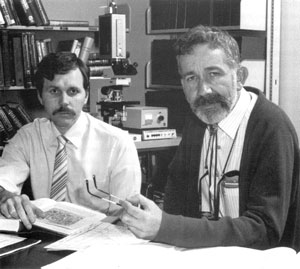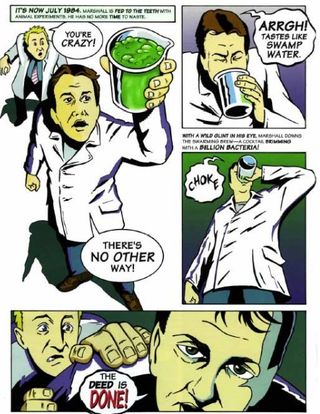Today we see many young graduates looking for easy ways to succeed. They want to get into high paying jobs without doing hard work. We hardly see determination to pursue difficult things and win in them.
“They followed their passion and riches followed them – were awarded with the Nobel Prize, the highest honour a scientist can ever hope to receive in his life.
They are lacking that burning desire to stay away from the herd and do something that they are really interested in – where they can make a difference. Do you think I am expecting too much? If not from our young educated graduates, from whom should I expect these things? I can’t expect this from uneducated or elderly people.
![]()
I know these words are hard to digest; but unless you face the reality, take it positively and get motivated to succeed, you can’t do well in your life.
So, here’s the story of two Nobel laureates from whom today’s graduates can learn many things. This should help you get some inspiration that helps you to succeed in today’s world where there is too much external influence. This is a real story of determination and pursuit of excellence in extra-ordinary conditions.
Myth: Stress or indigestion causes gastritis
For many years, there was belief that gastritis and stomach related problems are the result of stress, greasy food or too much alcohol consumption. Nobody was aware of the fact that a type of bacteria causes gastritis. It was the two Australian physicists who proved that gastritis is caused by the bacterium H.pylori.
Australian physicists suspect that bacteria causes acidity (gastritis)
In 1979, Australian pathologist and hematologist, J. Robin Warren observed an unexpected bacteria growing in a gastric biopsy, and began studying it. Two years later, he met Barry Marshall. Both of them conducted a seven year study of H.pylori and finally found that it causes peptic ulceration, commonly called as acidity that leads to stomach ulcers.
 No one believed them – They faced lots of criticism
No one believed them – They faced lots of criticism
For many years, their findings were ignored. No one believed that bacteria causes gastritis because it was against the prevailing knowledge of that period. The accepted medical teachings during that period held that bacteria could not survive for a long time in the acidic environment of the stomach and gastritis was a result of stress and poor diet.
Vested interest will prevent spread of knowledge
After proposing the idea the physicists had to struggle in the face of skepticism. Their work was not received enthusiastically because many people had their vested interests. In Marshall’s words – “When I was criticized by Gastroenterologists, I knew that they were mostly making their living doing endoscopy on ulcer patients.”

Marshall infected himself with bacteria
Marshall’s breakthrough came painfully in 1984. Frustrated by failed efforts to infect lab animals with the H.pylori, he conducted experiment on himself, the only human patient he could ethically recruit.
He took some H.pylori bacteria, stirred into a broth, and drank it. In just 3 days he developed symptoms. On the 8th day he had gone for a repeat endoscopy and biopsy, which showed massive inflammation (gastritis). This experiment was published in the ‘Medical Journal of Australia’ in 1985. Later Marshall also developed an enzyme-based breath test to check for the presence of H.pylori bacterium.
Both the Australian physicists were awarded Nobel Prize in 2005 – 26 years after their discovery
 In 2005, both Marshall and Warren were awarded with the Nobel Prize in physiology or medicine for their discovery of Helicobacter Pylori bacterium and its role in gastritis and peptic ulcer’s disease.
In 2005, both Marshall and Warren were awarded with the Nobel Prize in physiology or medicine for their discovery of Helicobacter Pylori bacterium and its role in gastritis and peptic ulcer’s disease.
Many stomach infections can now be cured permanently by using some antibiotics like amoxicillin, clarithomycin, metronidazole, and tetracycline.
Lessons to learn
The two Nobel laureates even after facing lot of criticism never changed their course or destination. They didn’t break down or lose hope due to lack of encouragement.
Independent thinking combined with scientific temperament is their greatest asset.
They chose a difficult way – did not look for any shortcuts.
They were so confident about their research and scientific reasoning.
They consistently continued with their research for the benefit of humanity and to prevent the suffering of lakhs of people from a lifetime discomfort.
They followed their passion and riches followed them – were awarded with the Nobel Prize, the highest honour a scientist can ever hope to receive in his life.
